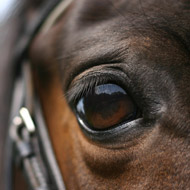Human trial of Hendra vaccine comes to a close

Hendra virus occurs naturally in flying foxes and causes severe disease in horses and humans.
A year-long human trial of a Hendra vaccine has come to an end, with no serious adverse effects seen in any of the 40 participants.
Queensland's chief health officer Jeanette Young told AAP that clinical trial results will be released later this year.
The trial involved five groups of eight people, of whom six were administered the monoclonal antibody and two were given a placebo.
Hendra virus occurs naturally in flying foxes and causes severe disease in horses and humans. The route of transmission to horses is thought to be food that has been contaminated with the urine, faeces or foetal fluids of infected bats. Humans become infected through close contact with affected horses.
The virus was first identified in the Brisbane suburb of Hendra in Australia in 1994. According to the Australian Veterinary Association, the last outbreak was reported in September 2015.



 The RCVS has announced a new version of its 1CPD mobile app, with enhanced features for veterinary surgeons and veterinary nurses to record their continuing professional development.
The RCVS has announced a new version of its 1CPD mobile app, with enhanced features for veterinary surgeons and veterinary nurses to record their continuing professional development.